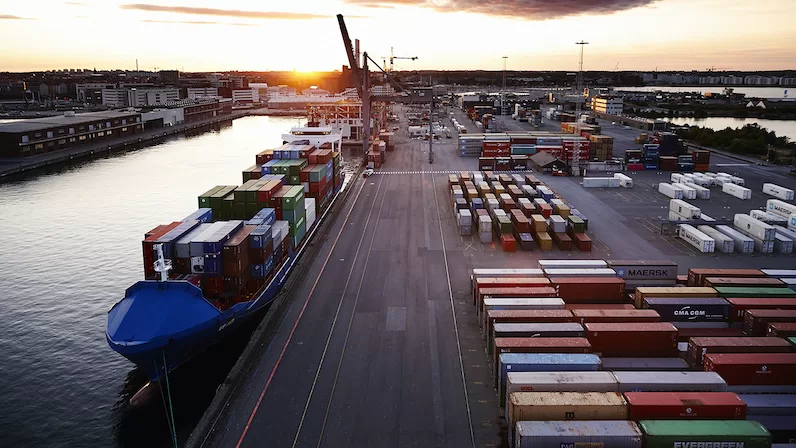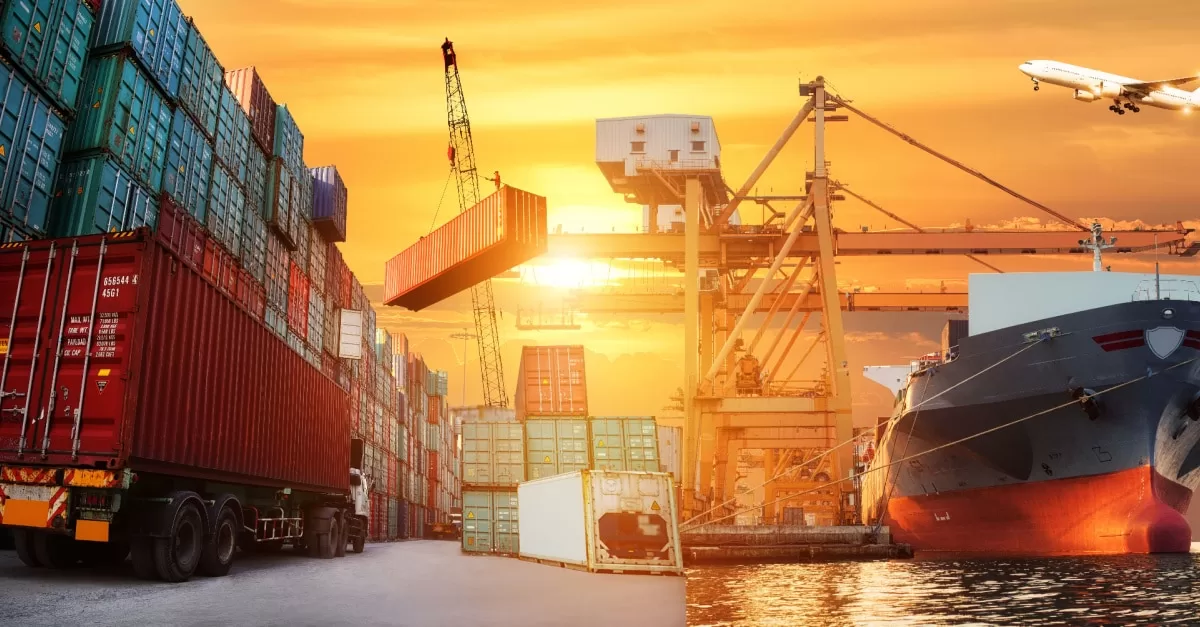What risks exist in multimodal logistics, and how can these risks be reduced?
Multimodal logistics involves the use of multiple modes of transportation to move goods, offering significant advantages in terms of efficiency and cost-effectiveness. However, this method of transport also comes with a range of risks that need to be carefully managed to ensure smooth operations and protect the integrity of the supply chain.
Operational Risks in Multimodal Logistics
Operational risks in multimodal logistics stem from the complexity of coordinating multiple modes of transport. Each mode, whether road, rail, air, or sea, has its own set of operating procedures, regulations, and potential for delays. These risks can lead to supply chain disruptions, impact the timely delivery of goods, and increase costs. To mitigate operational risks, implement a robust tracking system that provides real-time visibility into the movement of goods, enabling swift action in the event of delays or issues, in addition to collaborating with an experienced logistics provider.

How to manage regulatory compliance risks in intermodal logistics
Multimodal logistics presents significant compliance challenges due to varying regulations across transport modes and jurisdictions. Each mode of transport has its own customs, security, safety, and documentation requirements, and cross-border shipments must adhere to specific compliance standards for each country involved, further increasing complexity.
Customs clearance regulations vary widely from country to country, covering tariffs, import and export restrictions, and unique documentary requirements. To minimize delays and ensure smooth customs clearance, it is essential to stay up-to-date on customs regulations and collaborate with an experienced customs broker or logistics partner who is skilled in navigating complex environments. In addition, it is crucial to accurately and timely complete the required documentation for each leg of the shipment, such as bills of lading, certificates of origin, and security documents. Utilizing document management software can streamline this process and reduce human error.
Security regulations also vary across transport modes, and noncompliance can result in shipment delays, fines, or detention. Strict adherence to security protocols, including cargo inspections, container seals, and the proper handling of hazardous materials, is crucial for maintaining efficiency and avoiding penalties in multimodal logistics operations.

Addressing Cargo Handling Risks
Cargo handling risks in multimodal logistics pose a significant challenge due to the need to transfer cargo between various modes of transport, including ships, trucks, trains, and planes. Each transfer point presents a greater risk of cargo damage, loss, or contamination, especially when different modes of transport have their unique handling procedures and equipment.
One of the most critical ways to mitigate cargo handling risks is to use high-quality, mode-appropriate packaging materials. For example, moisture, salt, and long transit times often expose ocean freight, requiring durable, waterproof packaging. Similarly, air freight may subject cargo to rapid changes in altitude and pressure, requiring the use of reinforced packaging to prevent damage. You must assess the nature of the cargo and the specific conditions it will encounter on each leg of its journey to determine the best packaging solution.
To further improve the safety and integrity of cargo, companies also regularly review and audit their handling practices. Audits help identify gaps or weaknesses in current procedures, providing an opportunity to address them before risks result in cargo damage or delays.

Reduce the risk of delays.
One of the most essential strategies for reducing the risk of delays in multimodal logistics is proactive route planning. This involves analyzing potential bottlenecks, predicting weather patterns, and understanding the operating schedules of different modes of transportation. Adopting advanced logistics management systems can leverage route optimization tools that factor in real-time traffic data, port congestion, and weather conditions to determine the most efficient routes. These tools utilize predictive analytics to anticipate potential delays, enabling logistics managers to reroute freight shipments or adjust schedules as necessary to prevent disruptions.
A key element in managing the risk of delays is maintaining flexibility in scheduling. In intermodal logistics, tight schedules can exacerbate the impact of any disruptions, as delays in one mode can cause delays in subsequent modes. By building buffer time into the schedule, logistics managers can absorb minor delays without affecting the overall schedule. Flexible scheduling also involves the ability to switch to an alternative mode of transportation quickly when needed.
Strengthening Security in Multimodal Logistics
Security risks in multimodal logistics are a significant concern as goods are vulnerable to theft, loss, or damage at every point in the supply chain. The complexity of intermodal logistics, which involves multiple modes of transportation such as trucks, ships, trains, and airplanes, increases the likelihood of security breaches.
Comprehensive security measures are crucial for mitigating these risks. One of the most effective ways to protect cargo is to implement advanced tracking systems. Technologies such as GPS, RFID tags, and IoT-enabled sensors provide real-time visibility into the location and condition of cargo. These systems enable logistics providers to monitor the movement of cargo at every stage, ensuring that cargo remains on track and identifying any deviations from planned routes that could indicate potential security issues.
In addition to tracking systems, secure storage facilities play a crucial role in maintaining cargo security during intermodal transit. Secure, monitored warehouses require 24/7 monitoring, controlled access, and physical barriers to protect cargo awaiting transfer between modes of transportation.
Help you better deal with various risks
Multimodal logistics has many advantages but also a range of risks that must be carefully managed. By understanding and addressing operational, regulatory, cargo handling, financial, security, and technical risks, more reliable and efficient logistics operations can be ensured.


